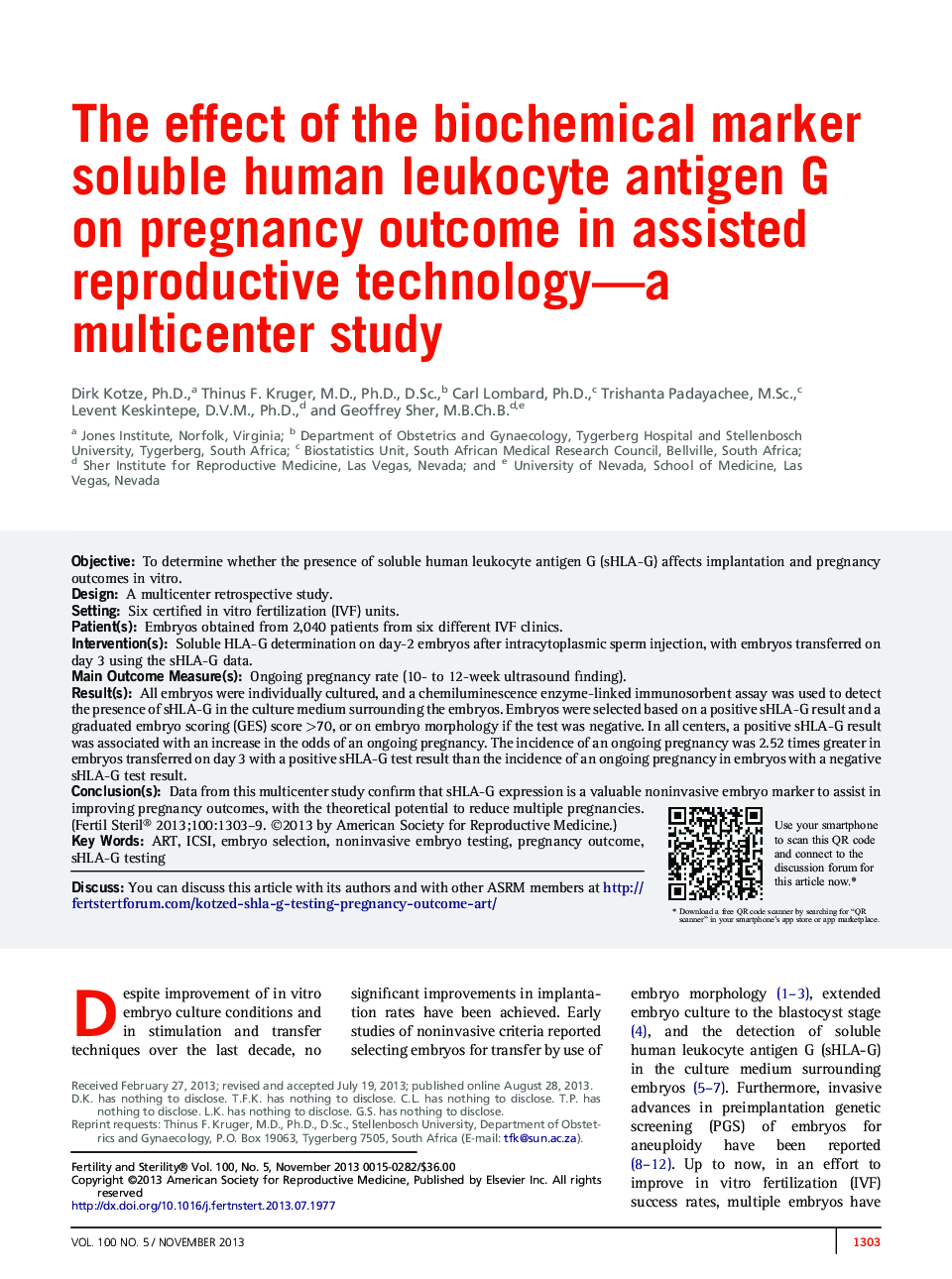| Article ID | Journal | Published Year | Pages | File Type |
|---|---|---|---|---|
| 3938772 | Fertility and Sterility | 2013 | 7 Pages |
ObjectiveTo determine whether the presence of soluble human leukocyte antigen G (sHLA-G) affects implantation and pregnancy outcomes in vitro.DesignA multicenter retrospective study.SettingSix certified in vitro fertilization (IVF) units.Patient(s)Embryos obtained from 2,040 patients from six different IVF clinics.Intervention(s)Soluble HLA-G determination on day-2 embryos after intracytoplasmic sperm injection, with embryos transferred on day 3 using the sHLA-G data.Main Outcome Measure(s)Ongoing pregnancy rate (10- to 12-week ultrasound finding).Result(s)All embryos were individually cultured, and a chemiluminescence enzyme-linked immunosorbent assay was used to detect the presence of sHLA-G in the culture medium surrounding the embryos. Embryos were selected based on a positive sHLA-G result and a graduated embryo scoring (GES) score >70, or on embryo morphology if the test was negative. In all centers, a positive sHLA-G result was associated with an increase in the odds of an ongoing pregnancy. The incidence of an ongoing pregnancy was 2.52 times greater in embryos transferred on day 3 with a positive sHLA-G test result than the incidence of an ongoing pregnancy in embryos with a negative sHLA-G test result.Conclusion(s)Data from this multicenter study confirm that sHLA-G expression is a valuable noninvasive embryo marker to assist in improving pregnancy outcomes, with the theoretical potential to reduce multiple pregnancies.
